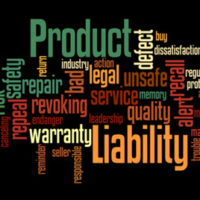What Happens When a Product Liability Defendant Withholds Information From the Victim?

Defective products injure thousands of Tennessee consumers every year. Manufacturers can be held legally liable for any defects in the design, manufacture, or labeling of their products. Product liability cases are often difficult to prove, however, especially since most of the potentially incriminating evidence is in the hands of the manufacturer.
Supreme Court Weighs in on $2.7 Million Sanction Against Goodyear
It is not unusual for pre-trial discovery in product liability cases to take months or even years. The more complex the product, the longer the process can take. Manufacturers are well aware of this, and they often try to prolong or obstruct discovery in order to discourage victims from pursuing their case.
Sometimes a manufacturer crosses a line and a judge has to step in. The U.S. Supreme Court recently addressed such a case. The Court actually dealt with a narrow issue arising from a trial judge’s earlier decision to award a family $2.7 million as punishment for a defendant’s blatant misconduct.
The underlying product liability case arose from an accident that destroyed a family’s motorhome. The vehicle “swerved off the road and flipped over,” according to court records. The family claimed a defective tire was to blame. Specifically, a tire manufactured by Goodyear “was not designed to withstand the level heat it generated when used on a motorhome at highway speeds.”
The family and Goodyear spent several years in pretrial discovery. During this time, the family made several requests for Goodyear to “turn over internal test results” on the tires in question. The parties ultimately settled the product liability claims on the eve of trial for an undisclosed amount.
That should have been the end of the case. But several months after the settlement was complete, the family’s product liability attorney read a newspaper article about another lawsuit involving Goodyear and the same tire. In that case, Goodyear disclosed testing data that was never disclosed to the attorney or his clients during their many years of pretrial discovery.
Goodyear had been caught red-handed. The company admitted as much. The judge who presided over the settlement imposed sanctions–the previously mentioned $2.7 million–as compensation for all of the family’s legal fees and costs dating back to the first time they requested the testing data from Goodyear.
The Supreme Court said that was excessive. Writing for a unanimous Court, Justice Elena Kagan said the family was only entitled to fees “incurred solely because of the misconduct–or put another way, to the fees that party would not have incurred but for the bad faith” of the other party. The Supreme Court left it up to the lower courts to determine the appropriate amount of sanctions under this standard.
Get Help From a Tennessee Personal Injury Lawyer
The Supreme Court’s ruling is still an important vindication of the rights of personal injury victims. Companies that withhold information in an attempt to avoid liability can and should be sanctioned. Cases like this only illustrate the uphill battle individuals face when battling well-funded corporate defendants. That is why you need to have an experienced Knoxville product liability attorney on your side who knows to handle these types of defendants. Contact the offices of Fox, Farley, Willis & Burnette, Attorneys at Law, if you have been injured to a defective or dangerous product and need to speak with a lawyer right away.
Source:
supremecourt.gov/opinions/16pdf/15-1406_db8e.pdf
